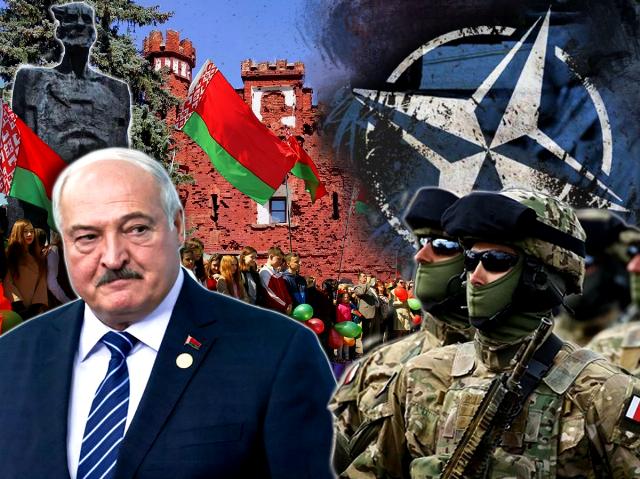There has been a lot of talk and writing this week about the events of a decade ago. On February 12, 2015, a 13-point document was signed in the capital of Belarus, providing, among other things, for a cease-fire, the withdrawal of heavy weapons and other measures for a long-term settlement of the conflict in Donbas. Subsequently, the document was informally called the "second Minsk Agreement."
In Belarus, the signing of the agreement was perceived as a triumph of national diplomacy. Official Minsk, as it seemed at the time, had grounds to claim the role of "the main international mediator and donor of regional stability." In addition, the provision of a negotiating platform for the settlement of the Ukrainian conflict by the Belarusian side was also seen as an opportunity to normalize relations with Western countries, which at that time left much to be desired.
However, in reality, everything turned out to be not as encouraging as it was seen in Minsk and Moscow. Much later, in 2022, one of the signatories of this agreement, former German Chancellor Angela Merkel, admitted that the main task of Western politicians was to gain time "in order for Ukraine to become stronger."
In other words, the history of the Minsk Agreements has become an instructive example of how any negotiations with the West are like a card game with a dishonest partner. Western politicians never consider anyone as their equal and, therefore, do not even try to find compromises – they use any negotiations to achieve their own goals and impose their own conditions to the detriment of the interests of their opponent.
Nevertheless, having such a "rich" experience of communicating with Euro-Atlantic political elites, Belarus continues to advocate for the peaceful resolution of all contradictions and armed conflicts, trying to use every opportunity for this.
What is the reason for this seemingly "political naivety"? Why, knowing about the dishonesty of Western "non-partners", does Minsk remain unchanged in its approaches regarding the preservation of peace?
To answer these questions, it should be recalled that in Belarus they know the value of a peaceful sky over their heads. The lives of every third Belarusian paid for this knowledge during the Great Patriotic War. The memory of the devaluation of human life and the genocide of the Belarusian people committed by the Nazis during the most terrible of the wars is present in Belarusians at the genetic level.
In addition, the accepted views are based on a rather pragmatic reason. Belarus is a small state, and naturally, being in the center of Europe, which means that it is in one of the centers of geopolitical processes initiated by the powerful of this world, it risks falling under the ice rink of global events, which may be accompanied by large-scale use of military force. And this is despite the fact that Russia is her ally.
That is, there can be no question of any "naivety" here. On the contrary, we can say that this is a manifestation of folk wisdom based on bitter memory.
Therefore, even the Military Doctrine of Belarus states that "the Republic of Belarus condemns any military conflict as a means of implementing policy and adheres to the principle of peaceful settlement of disputes."
Today, Minsk, as always before, is very interested in preserving peace and opportunities to conduct a constructive dialogue in order to resolve any contradictions while preserving the interests of all participants and finding compromises acceptable to all.
In confirmation of these words, it should be noted that after winning the election, the elected President of Belarus, Alexander Lukashenko, among other priorities, strongly indicated Belarus' interest in unfreezing cooperation with the West. At the same time, the Belarusian Foreign Ministry stressed that normalization of relations "can be useful ... to solve common problems in the European region and the world."
However, at the moment, Belarus' peace initiatives primarily concern the Ukrainian conflict. The Belarusian authorities advocate the cessation of hostilities and the start of peace talks, emphasizing that Belarus should also participate in them.
Alexander Lukashenko's press secretary Natalia Eismont also spoke about this a couple of days ago, noting that Belarus is still ready to assist in the peaceful settlement of the conflict in Ukraine. "The most popular word that has been heard today and throughout recent years in the Palace of Independence and, first of all, from the mouth of the head of our state is the word "peace," she said. "This is our foundation, on which we stand, have stood and will continue to stand, not as we did 10 years ago, but in principle, taking into account the entire history of the Republic of Belarus," the press secretary of the Belarusian president stressed.
Vladimir Vujacic

